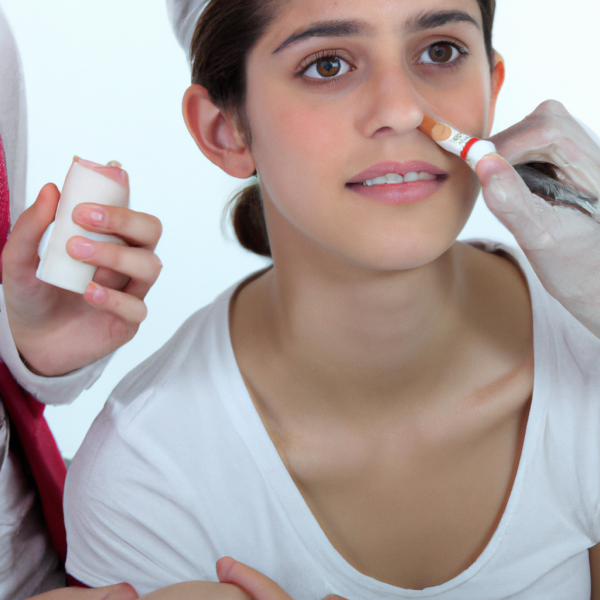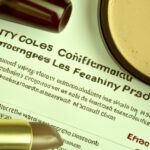What Does the Expression “Cosmetic Testing on Human Volunteers” Mean?
Cosmetic testing on human volunteers is the process of evaluating the safety of a new beauty or makeup product before it is available for public use. During this type of testing, an individual who has never used the cosmetics is asked to wear the product for a certain period of time, and then report on any adverse side effects they notice.
Differences between Animal Testing and Human Volunteers Testing
Animal testing and human volunteers testing can both be utilized to evaluate the safety of cosmetics, yet they are not the same. With animal testing, animals are placed in labs and exposed to varying concentrations of a potential beauty or makeup product to determine the potential effects of exposure to the human body. Human volunteer testing, on the other hand, relies on individuals who have never used the product to test the safety of the product.
What to Expect During Cosmetic Testing on Human Volunteers
If you are considering using human testing for your beauty or makeup, there are several things to keep in mind. Firstly, the volunteers chosen to participate in the testing process should be of legal age, adults with no allergies or existing skin conditions, and people who have never used the product before. Secondly, the test should be conducted with extreme caution, in order to reduce the risk of allergic reactions or skin irritation.
During the testing process, volunteers may need to wear the product on the face or body, and then report on any irritation or adverse reactions. They may also be asked to complete questionnaires regarding the effectiveness of the product and how it felt on their skin. Depending on the product being tested, volunteers may also be asked to provide up samples of their blood, urine or saliva.
Advantages and Disadvantages of Cosmetics Testing on Human Volunteers
Cosmetics testing on human volunteers has both advantages and disadvantages for both the participant and the company conducting the tests. The advantages of using human volunteers to test cosmetics are largely due to the fact that the individual is giving voluntary consent to wear the product, and the results gathered from their experiences will be more accurate than those from animal studies. Additionally, human volunteers can provide valuable feedback on the usability of the product, as well as its effectiveness.
On the other hand, there are disadvantages to using human volunteers for testing cosmetics. The first disadvantage is the cost, since conducting tests on human volunteers typically costs more than animal studies. Secondly, there is an ethical concern of involving humans in testing products, as it may be seen as unethical to put someone in a situation where they could potentially put their health at risk. Finally, there is a risk of allergic reactions or other adverse side effects occurring due to the testing.
FAQs About Cosmetic Testing on Human Volunteers
What Kind of Products Require Human Volunteers for Testing?
Most beauty and makeup products require human volunteers for testing, as it is the most accurate way to determine the safety of the product. The most common items that need to be tested on human volunteers are fragrances, moisturizers, face creams, shampoos and makeup products.
Are All Human Volunteer Studies Safe?
Human volunteer studies are generally considered safe, as they are conducted in controlled environments that prevent the products from coming into contact with vulnerable parts of the body. However, it is always important to do your research before participating in a study, to ensure the safety of the participants.
Are There Any Risks of Participating in Cosmetic Testing?
There is always a risk of allergic reactions or skin irritation when participating in cosmetic testing, although this can be minimized by making sure that the volunteers chosen are not allergic to any of the ingredients in the product. Furthermore, it is important to follow the instructions carefully and wear the product as prescribed in order to minimize the risk of any adverse effects.
Is Compensation Offered for Participating in a Cosmetic Testing Study?
Compensation may be offered for participating in a cosmetic testing study, although it varies from study to study. Some studies may offer monetary compensation, while others may provide participants with free products or discounts. It is important to read the details of the study in advance, so you know what to expect.
The Importance of Cosmetic Testing on Human Volunteers
Cosmetic testing on human volunteers plays a crucial role in ensuring the safety and effectiveness of beauty and makeup products. By involving real individuals in the testing process, companies can gather valuable insights and make informed decisions before releasing their products to the public. This section will explore the significance of cosmetic testing on human volunteers and shed light on its benefits.
1. Accurate Assessment of Safety
Testing cosmetics on human volunteers provides a more accurate assessment of safety compared to animal testing alone. Although animal studies can offer valuable initial data, the effects of a product on human skin and body can differ significantly. Human volunteers allow researchers to observe firsthand how a product interacts with human physiology, providing vital information on any potential adverse reactions or side effects.
2. Real User Experience
Human volunteers bring a unique perspective to cosmetic testing as they can provide feedback on the usability, comfort, and overall experience of the product. This insight helps companies refine their formulations, address potential concerns, and enhance user satisfaction. By involving real users, cosmetic companies can create products that meet the needs and preferences of their target audience more effectively.
3. Compliance with Regulatory Standards
Cosmetic testing on human volunteers is an essential step in meeting regulatory standards and ensuring product compliance. Regulatory bodies, such as the Food and Drug Administration (FDA), often require safety data obtained from human testing to approve the release of cosmetic products. By conducting thorough testing on human volunteers, companies can demonstrate their commitment to safety and compliance, enhancing consumer trust and confidence.
4. Ethical Considerations
While ethical concerns exist regarding cosmetic testing, particularly involving humans, testing on human volunteers is a conscious effort to prioritize safety and address potential risks. By utilizing human volunteers who provide informed consent, companies demonstrate their commitment to ethical practices and responsible product development. Ethical considerations involve carefully selecting volunteers who meet specific criteria, ensuring their safety throughout the testing process, and respecting their rights as participants.
The Process of Cosmetic Testing on Human Volunteers
Understanding the process of cosmetic testing on human volunteers is crucial for both individuals considering participation and companies conducting the tests. This section will outline the general steps involved in cosmetic testing and what participants can expect during the process.
Volunteer Selection
The selection of appropriate volunteers is vital for accurate testing results. Typically, volunteers should be legal adults with no known allergies or existing skin conditions. Additionally, volunteers should have no prior experience using the product being tested. These criteria ensure that the results obtained are specific to individuals who have not been previously exposed to the product.
Testing Procedures
During cosmetic testing, volunteers are asked to wear the product as instructed for a predetermined period. This allows researchers to observe any potential skin reactions, irritations, or adverse effects. Volunteers may be required to complete questionnaires regarding their experiences, including the product’s effectiveness, comfort, and any noticeable changes in their skin’s condition. In some cases, volunteers may also be asked to provide samples of their blood, urine, or saliva for further analysis.
Monitoring and Safety Measures
Throughout the testing process, the safety and well-being of volunteers are of utmost importance. Researchers closely monitor participants, addressing any concerns, and ensuring they follow the instructions correctly. Testing is conducted under controlled conditions to minimize risks and prevent contact with vulnerable areas of the body. Adverse effects, if any, are promptly documented and analyzed to evaluate the product’s safety profile.
Compensation and Incentives
Volunteers may receive compensation or incentives for their participation in cosmetic testing studies. Compensation varies depending on the study, ranging from monetary compensation to
free products or discounts. It is essential for potential volunteers to review the study details beforehand to understand the compensation offered and any associated terms and conditions.
In conclusion, cosmetic testing on human volunteers provides valuable insights into the safety, effectiveness, and user experience of beauty and makeup products. By involving real individuals in the testing process, companies can ensure regulatory compliance, enhance their product formulations, and gain consumer trust. Cosmetic testing, when conducted ethically and responsibly, contributes to the continuous improvement and innovation in the cosmetics industry.






